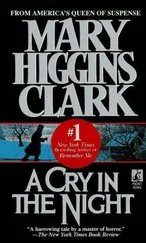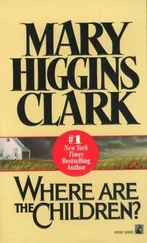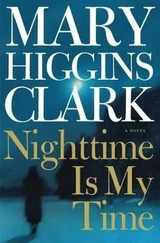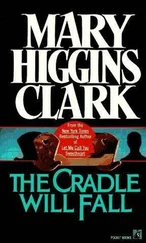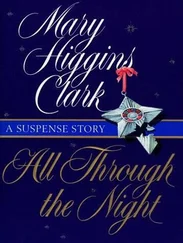But Hathaway was looking at him expectantly. “What’s up, Dwight?”
“I think I actually forgot. That walk down the maze must have made me dizzy.” He was pleased when Hathaway smiled. The line had worked.
“I do that all the time,” Hathaway said. “But, hey, since you’re here: I got a call from a Laurie Moran? A TV special about Susan Dempsey? They said you gave them my name. I thought everyone sort of knew Frank Parker did it but the police could never prove it.”
Dwight wanted to scream, But I might be able to! Instead, he said, “I just want people to know that Susan was more than her headshot. She wasn’t some wannabe actress. She was . . . truly phenomenal.” Dwight heard his own voice crack like a middle schooler’s. Once he was on camera, would everyone watching know how obsessed he had been with his fellow lab assistant? “And, let’s face it,” he added, “you’d be better on TV than me.”
“Are you sure this is a good idea? They’ll be asking about the work in the lab. You know I don’t like anything that calls attention to how this company got launched.”
It had been nearly twenty years since they started REACH. Sometimes Dwight actually forgot how the idea had originated, but Hathaway never did.
“It won’t be like that,” Dwight insisted. “Shows don’t get ratings by delving into the details of web-search optimization. They just want to hear about Susan.”
“Very well, then. If you’re in, I’m in.”
As Dwight returned to REACH’s colorful labyrinth, he felt completely alone. He couldn’t remember any time when he’d kept information from Hathaway. But he realized the real reason he had not shared his activities with his professor. He didn’t want Hathaway to be disappointed in him.
He had to find out more, though. The reason I want to do the show, he thought, is because once I have physical proximity to the others, I can clone their phones and finally prove who killed Susan. But, no, he couldn’t say any of that.
He had to do this. For Susan.
22
Without the rearview camera on the dash of her Volvo, Rosemary Dempsey might have clipped the edge of the newspaper recycling bin that had been thrown a bit too haphazardly to her curb after weekly pickup.
She loved the new technology that surrounded her every day, but it always made her wonder what Susan and Jack would have said about it.
As she shifted out of reverse, she caught sight of Lydia in her peripheral vision, watering her hydrangeas with a gardening hose. She wore bright orange rubber shoes and matching gloves, one of which waved in Susan’s direction. Rosemary returned the wave and added a friendly beep of the car horn. She made it a point to watch her speedometer as she rolled down the street. Knowing Lydia, any excessive speed could threaten their budding friendship.
Rosemary smiled as she navigated the turns through Castle Crossings, trying to imagine Lydia Levitt forty years ago, with bell-bottoms and platform shoes instead of gardening gear.
She was still smiling when the GPS told her that her destination was on the right. The navigation system’s estimate of the drive time had been nearly perfect: forty-two minutes to San Anselmo.
As Rosemary passed driveways filled with Porsches, Mercedes, even a Bentley, she started to wonder if her Volvo would be the worst car on the block. She saw one cream-colored pickup truck two houses down from Nicole’s, in front of a McMansion that overfilled its lot, but that car obviously belonged to a landscaper.
“ You have arrived at your destination ,” her car announced.
• • •
Rosemary had been to Nicole’s home before but still took a moment to register its beauty. A perfectly restored five-bedroom Tudor in San Anselmo with sweeping views of Ross Valley, it was, in Rosemary’s view, far too large for a couple with no children. But as Rosemary understood it, Nicole’s husband, Gavin, could afford it, plus he frequently worked at home rather than commute to San Francisco’s financial district.
The forty-minute drive was a small price to pay to deliver this news in person.
Nicole greeted her at the door before she had a chance to ring the bell. She gave Rosemary a quick hug before saying, “Is everything okay? You were so secretive on the phone.”
“Everything is just fine. I didn’t mean to alarm you.” Rosemary was so aware of her own loss as a mother, sometimes she forgot how Susan’s death must have affected others. When one of your best friends dies when you are only a teenager, do you spend the rest of your life on high alert?
“Oh, thank goodness,” Nicole said. “Come on in. Can I get you anything?”
The house was silent.
“Is Gavin home?” Rosemary asked.
“No, he has a dinner meeting with clients tonight, so he’s working at the office today.”
Rosemary had grown up one of five children and had always wanted to have a large family. But it was more than ten years before joyfully, happily, Susan had come along.
She was a social bee, always attracting the neighbor kids and then her schoolmates. Even when she’d gone to college, the house wasn’t silent. It still somehow buzzed from her energy—her phone calls, miscellaneous pieces of laundry left strewn around the house, her CDs blasting from the stereo when Rosemary flipped the switch.
Rosemary had never asked Nicole why she and Gavin had opted for a silent house, but she couldn’t help but feel sorry for them over the choice.
She followed Nicole into a den lined floor-to-ceiling with books. One wall was dominated by business books and historical nonfiction. The other wall popped with every kind of novel—romance, suspense, sci-fi, what some people called more “literary” fare. She felt a pang as she remembered Susan’s calling her from UCLA two days after the big move: “You’d love my roommate. She has amazing taste in books.” The novels had to be Nicole’s.
Once they were seated, Nicole looked at her expectantly.
“So you haven’t heard yet?” Rosemary asked.
“No,” Nicole said. “At least, I don’t think so. I have no idea what you’re talking about, and the anticipation is going to give me a premature heart attack.”
“It’s really happening. Laurie Moran called me. The head of the studio approved Susan’s case as Under Suspicion ’s next feature. And everyone has signed on: me, you, Madison, Frank Parker, and—color me shocked—Keith Ratner. She even got people who knew Susan from the computer lab.”
“That is wonderful news,” Nicole said, reaching over and briefly clasping Rosemary’s hands in hers.
“Yes, I think so, too. I feel like I pressured you into it, so I wanted to thank you personally.”
“No, no pressure at all. I couldn’t be happier.”
Rosemary had been on an emotional roller coaster ever since she opened Laurie Moran’s letter, but she still felt like Nicole was responding strangely.
“Laurie said they’ll do pre-production interviews with all of us. No cameras, for the most part. Just hearing our side of things so they know what to ask us once they yell ‘action.’ ”
“Sure, no problem.”
Did Rosemary imagine it, or had Nicole’s eyes just moved toward the staircase of her empty house? “You’re happy about this, aren’t you, Nicole? I mean, you and Madison were the only people my daughter ever lived with besides her parents. And, well, Madison was always sort of the add-on. Whether you wanted to be or not, you were the closest thing to a sister that Susan ever knew.”
Whatever distance Rosemary sensed in Nicole immediately vanished as her eyes began to water. “And for me, too. She was my friend, and she was . . . amazing. I promise you, Rosemary. I will help. Me, you, this show. If there’s any way to find out what happened to Susan, we’re going to do it.”
Читать дальше




